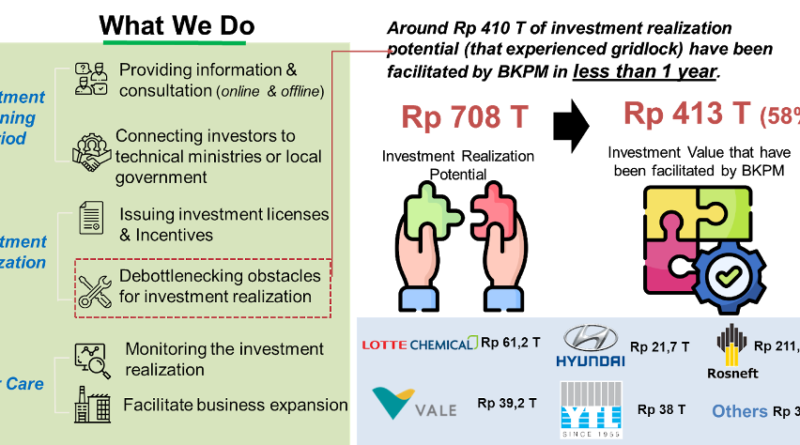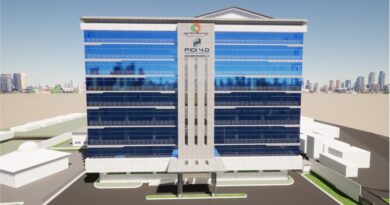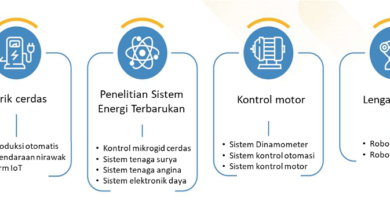Investment in Indonesia
Seize the opportunity of post pandemic on investment in Indonesia
Indonesia Investment coordinating board (BKPM)
1. Covid-19 Pandemic & economic perform

The outbreak Covid-19 will negatively affect global FDI flows. The downward pressure on FDI will be -5% to -15% compared to previous forecasts projecting marginal growth in the FDI trend for 2020-2021. The effects caused by negative demand shocks, production stoppages and supply chain disruptions in global value chains. The outbreak of Covid-19 will slow down capital expenditures of MNEs and their foreign affiliates.


Pandemic has impacted Indonesia economy, but SMEs show promising growth in which help supporting the economy. Global FDI is predicted to decline by 30-40%, FDI realization in Q2 / II fell -6.9%, accumulated in Semester I fell -8.1%. Indonesia GDP declined -5.32% in the second quarter of 2020 compared to the same period last year. SMEs, account for 60% of GDP and 97% of domestic workforce, are the backbone of the domestic economy. The speed at which SMEs are adapting to new consumer demand and digitalization is a breath of fresh air in the middle of massive layoffs and business closures all over the world.
The Impact of COVID-19 in Indonesia includes in health, social, economy, and finance.
The Indonesia economy in 2020 is projected to grow between 2.3% (severe scenarios) and -0.4% (very severe scenarios). The impact of the escalation of COVID-19 pandemic and economic slowdown on public health and welfare, business continuity, and financial sector stability should be mitigated. The MSME and informal sectors are the most affected sectors.

The impact of covid-19 on investment negative and positive. The negative impact is decrease demand for particular sector and disruptions in global supply chains lead to a decline in the supply for certain industry, so that decrease the company revenue and delay on investment activities due to the decline in revenue. On the other hand, the covid-19 increase the demand for pharmaceutical and medical devices products.




2. Why Indonesia
Indonesia has huge market size and rapid growing digital economy. Indonesia’s economy is forecast to be the world’s 10th largest by 2025. It is predicted the GDP of more than $1 trillion (PPP), the largest economy in ASEAN, also the only ASEAN member in the G20. Besides, Indonesia is the fourth most populous country in the world. With population of 260 million, the “Consuming class” twice the size of the population of Australia. In addition, Young and dynamic people 44% of Indonesians are aged under 25. The other reason, Indonesia is a global leader in social media. It has More Facebook and Twitter users than the population of Australia, the world’s third largest market for Facebook, and The most active city for Twitter in the world is Jakarta. In addition to huge market size and rapid growing economy, Indonesia has signed bilateral free trade agreements such as EPA with Japan, CEPA with Australia and Chile, and near future will sign CEPA with Korea, European union.
Regarding the New Normal, to leave the crisis stronger, Indonesia could consider eight trends that will define its next normal that includes: (1) Healthcare. Reform to prepare for possible future pandemics, (2) Government and regulation. Identify need for detailed protocols for safe operations, (3) Technology and innovation. Accelerate use of online channels and digitalization of businesses, (4) Energy and environment. Shift towards more environmentally friendly habits, (5) Supply chain. Address supply chain flaws revealed by crisis, (6) Work habits. Consider how new work habits could increase demand for in-home services, (7) Society and consumers. Identify changes in consumer behavior caused by pandemics, (8) Social contracts. Recognized signs of comfort with reduced privacy in return for greater guarantee of health, safety and comfort.
3. Update on Investment Policy
BKPM strategy during Pandemic Covid-19. The first, promote healthcare-related Investment, i.e. garment and textile to produce healthcare support products such as APD. This could generate into a new export driver for Indonesia. Second, established special task force for relocation investment. The team directly report to chairman BKPM to approach companies intent to relocate their businesses to Indonesia. Third, existing companies reinvestment plan. Matchmaking between locals and FDI courtesy meeting to update investment progress. Fourth, debottlenecking of investment project. Problem solving approach 1-on-1 meeting to find solution. Fifth, new and greenfield investors facilitation. Information services meeting and site visits incentives negotiation. BKPM is always committed to support investment and create a favorable investment climate.

Presidential Instruction No. 7 of 2019 was issued to give authorization for BKPM in terms of business licensing and incentives, that are, (1) Coordinate corrective measures to improve the EODB ranking, (2) Evaluate the implementation of business licensing and investment facilities grant carried out and provided by ministries/government institutions, (3) Facilitate and provide services to the businessmen in managing business licenses and providing investment facilities, (4) Develop Norms, Standards, Procedures, and Criteria (NSPK) of business licensing and granting of investment facilities delegated by ministry/institution, (5) Ministries/government institutions delegates the authorization of business licenses and investment facility grant to BKPM. President Jokowidodo also create the Job law that give many benefit to labor and investor such as ease of doing business (EoDB), simplification of business licensing, etc. The Job Creation Law is one of the keys to increase Indonesia’s competitiveness as an investment destination country.




The Latest Updated on Visa and Stay Permits in the New Normal. Based on the regulation of the Minister of Law and Human Rights No. 26/2020: (1) Offshore visa application is open for eligible persons towards national economic recovery and family reunion and required a guarantor/ sponsor in Indonesia, (2) Extension of Stay Permit for foreigners staying in Indonesia (onshore visa service), (3) Commencing e-Visa, (4) Observing strict health protocols.

TO VISIT INDONESIA (APPLIED SINCE 15 OCTOBER 2020)
4. Investment Opportunities
Potential sectors for investment are labour-intensive manufacturing, export-oriented manufacturing, pharmaceutical and medical devices industry, food, renewable energy, infrastructure, mining industry which will create added value. Indonesia government also promotes Making Indonesia 4.0 that focus on five sectors of manufactures, that are, Food and beverage, textile, automotive, chemical, and electronics.
Government role to further stimulate startup industry creates investment opportunities in Digital Infrastructure. Increasing broadband access. Existing internet access in Indonesia remains relatively expensive and slow. Increasing broadband access and the quality of service will encourage digital technology adoption by SMEs and improve performance of existing technologies. Helping all SMEs to be digital businesses. Many government agencies provide SME support programs, including those targeted at increasing SME digital engagement. But they are often overlapping and limited in scale. Expanding e-payments. Improving trust in e-commerce payment platforms, increasing bankability of Indonesian consumers and businesses and expanding alternative payment systems will increase the volume of digital transactions.
Expanding access to finance. Digital SMEs need a mix of domestic and international sources of finance which are currently barriers that reduce their potential for growth. Expanding e-government services. Government services delivered through online platforms are more cost effective and efficient. More online government services would build consumer confidence in online activities and services over time.
5. Incentives from the government
Indonesia government offers different kind of Investment Incentive: Tax Holiday for Large Investment & Pioneer Industries. Based on Ministry of Finance Regulation No. 150/PMK.010/2018, and BKPM Regulation Number 8 Year 2019, the eligible sectors to apply Tax Holiday in Indonesia (Total 174 Business Classification) includes Upstream Base Metal Industry / Smelter, Machinery Industry, making of main engine or components for machine, Robotic Component Industry for manufacturing machinery industry, Automotive Industry and its main components including electric vehicle, Main components for Electric Power generation machinery, Digital economy data processing, hosting and its related sector, etc.






